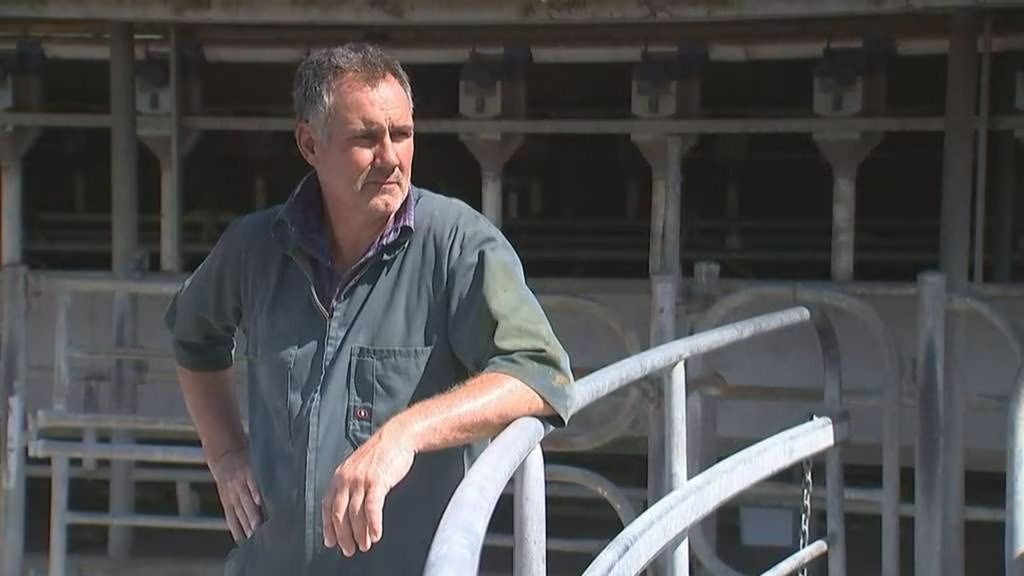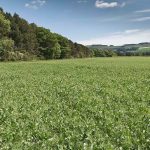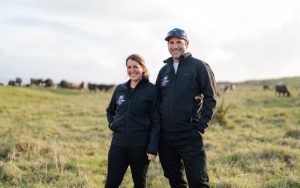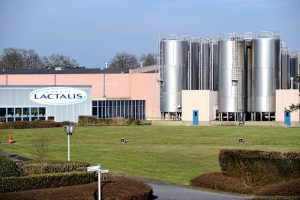
The region has been hit hard in the aftermath of the cyclone, with power, roads and communication only just coming back.
1News spoke to Nick Dawson, a dairy farmer who lives near Patoka just outside of Napier; he’s being forced to cut his season four months short thanks to the lack of road access.
When the power went out, Dawson had to stop all milk production, which caused significant problems for the welfare of his 460 animals.
“Animal welfare is our biggest issue at the moment; just trying to get stock water is a big issue,” he said.
“Also light and power for our stock water, so when that stopped, it’s pretty hard.”
Dawson couldn’t milk his cows for four days; when cows aren’t milked, they’re prone to infections like mastitis – he said eight of his cows are having problems.
He told 1News that production for the year was up 26%, making it the farm’s best season ever; Cyclone Gabrielle changed that.
Cows are being milked again, thanks to generators, but tankers can’t get into the farm, which means Dawson has to dump milk.
“It’s just ridiculous, there are people in the world starving, and we’re dumping milk,” he said.
“I can’t see a tanker come out here for four to six months.”
The early end of the season means Dawson can’t get the product off the farm, and thus be unable to make a living. Thankfully, Fonterra will pay him for the last three years of average production.
He said the farm’s entire plan had been changed thanks to the cyclone.
“You set your whole year around for this production, this milking and sheep and beef farms are the same; they’ve gotta get their product off the farm to make some money.
“Without them coming off, we’ve gotta think about winter rations now, how we’re gonna get through winter with the amount of grass we’ve got on hand.”
Patrick Crawshaw, who also farms in the area, has had his land destroyed by slips.
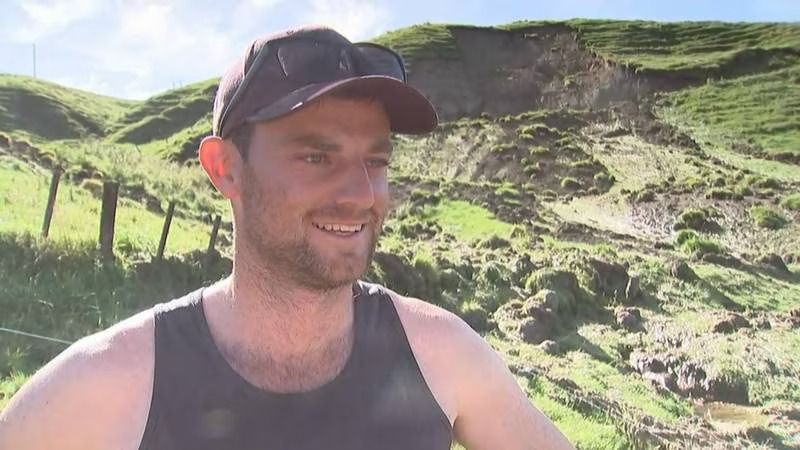
He said it was tough to see his land in the state it’s in following the cyclone.
“We went through the process of [installing] hundreds of kilometres of fencing to protect the waterways, try and create biodiversity, stock management and things like that; it’s all in pieces now.
“It’s all rebuildable, but the task is immense,” he said.
Both men said that while their farms have been hit hard, connecting the community and helping those who need it is the most important task.
“I turned the TV on for the first time in days last night, and we’ve got it easy,” Dawson said.
“Thoughts go out to people in town; we’re fine, we’re pretty self-sufficient; I think, look after them first and then work your way out.
“I’m okay with the work that we’ve got in front of us and the process to get that back into shape, but certainly out of our farm gate, it’s more just people’s welfare,” Crawshaw said.
